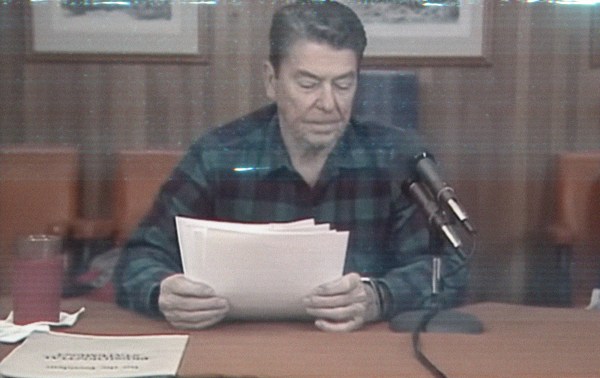Turn any article into a podcast. Upgrade now to start listening.
Premium Members can share articles with friends & family to bypass the paywall.
Happy Monday! After 738 days in Hamas captivity, almost exactly two years to the day they were taken, the 20 living Israeli hostages have returned home this morning to their families and loved ones. Amid a chaotic news cycle, it’s welcome good news to start the week.
Quick Hits: Today’s Top Stories
- Hamas released all 20 surviving kidnapped Israeli hostages on Monday morning as part of the White House-backed ceasefire deal between Israel and the Palestinian terrorist group, in which Israel agreed to release about 1,700 Palestinians detained since the October 7 massacre, and an additional 250 prisoners currently serving life sentences. The bodies of 28 Israeli hostages who died in Gaza have yet to be returned. President Donald Trump arrived in Israel on Monday and met with former hostages and their families in the Knesset ahead of his speech to Israeli lawmakers, during which he was greeted with a two-minute standing ovation. Later in the day, he will depart for Egypt to co-chair a conference of world leaders—except, notably, for Netanyahu—alongside Egyptian President Abdel Fattah el-Sisi. According to the Egyptian government, global leaders will meet to “end the war in the Gaza Strip” and to ensure “peace and stability” in the region. Meanwhile, Hamas forces reasserted control in parts of the Gaza Strip over the weekend, arresting those alleged to have collaborated with Israel and battling Palestinian militias opposing Hamas rule in the region.
- Pakistan’s military clashed with Taliban-governed Afghan forces on Thursday and into the weekend, killing at least 23 Pakistani troops and nine Afghan fighters, according to the respective authorities. Both sides claimed to have killed many more members of the opposing forces, but neither provided evidence to support those numbers. Taliban officials said Pakistan conducted air strikes late on Thursday, targeting Afghanistan’s capital city of Kabul, as well as a market in the country’s eastern region, attacks that Pakistani officials have yet to acknowledge. In response, the Taliban’s Defense Ministry announced that its forces engaged in “retaliatory and successful operations” across several areas near the Afghan-Pakistani border, prompting skirmishes between both forces. Pakistan has said that terrorist attacks in its territory were carried out by groups based in Afghanistan, and accused some Afghan officials of providing them protection, claims which the Taliban government has denied.
- After Trump on Friday threatened to impose an additional 100 percent tariff on Chinese exports to the U.S.—in retaliation for export controls on rare earth minerals that China told countries it planned to implement on November 1—the U.S. president took to Truth Social on Sunday. “Don’t worry about China, it will all be fine!” he wrote. “Highly respected President Xi just had a bad moment.” In response to Trump’s tariff threat, Chinese officials on Sunday said that they would retaliate against any new duties the U.S. applies. In addition to new tariffs, Trump had threatened to impose “Export Controls on any and all critical software” beginning on November 1, but it’s not clear whether that plan remains in effect. In response to Trump’s tariff and export control threat, Chinese officials also announced the country would impose new fees for U.S.-flagged oil tankers entering Chinese ports, prompting vast last-minute delivery cancellations.
- Amid the continued government shutdown, the White House on Friday began layoffs of federal workers, including—according to court documents the government filed that same day—4,100 employees across several federal agencies. The director of the White House Office of Management and Budget, Russell Vought, tweeted on Friday, “The RIFs [reductions in force] have begun,” and workers’ unions representing federal employees sued the administration later that day. The Trump administration laid off about 600 federal employees at the Centers for Disease Control and Prevention (CDC) on Friday, which, according to the union representing the agency’s employees and unnamed sources cited by Axios, included staffers in the National Center for Injury Prevention and Control, the National Center for Health Statistics, and the agency’s office in Washington, D.C. While about 1,300 total CDC employees were notified on Friday that they had been fired, federal health officials told the New York Times on Saturday that the administration rescinded layoff notices for approximately 700 employees that were erroneously sent, and an unnamed senior administration official told the outlet, “Any correction has already been remedied.” That same day, another federal health official told ABC News that coding errors were responsible for the unintended layoff notifications. Meanwhile, Trump announced in a Saturday Truth Social post that he directed Defense Secretary Pete Hegseth “to use all available funds” to ensure all military service members are compensated on their scheduled pay day, October 15, even as the federal shutdown continues.
- Ukrainian President Volodymyr Zelensky wrote on X on Saturday that he and Trump discussed Ukraine air defense proposals during a phone call, and Trump told reporters on Sunday that he was considering giving Russian President Vladimir Putin an ultimatum between ending the war or the U.S. gifting Ukraine long-range Tomahawk missiles. The phone calls occurred over an active weekend for the conflict, with electrical power fully restored to Kyiv over the weekend following Russian air strikes overnight on Friday that targeted the city’s electrical grid and power-generating facilities. Russian drone attacks overnight Saturday in Odessa caused large fires in the nation’s textile capital, and Ukrainian drones struck the Feodosia Marine Oil Terminal and several key electricity substations overnight Sunday in Russia-controlled Crimea. The Financial Times also reported on Sunday that U.S. intelligence aided Ukrainian forces’ recent strikes targeting Russian energy infrastructure.
Reap and Sow

It’s not a fun time to be an American soybean farmer.
The Trump administration’s trade wars and tariffs, and their unpredictable application and rates, have caused trouble across the entire U.S. economy, but the agricultural sector has been hit particularly hard. Over the past few years, China has been the top buyer of U.S. soybeans, purchasing between 20 and 30 percent of America’s soybean production—or 54 percent of its exported soybeans—and more than $12 billion in 2024. But China completely cut off such purchases earlier this year in response to President Donald Trump’s tariffs, with Chinese importers buying precisely $0 worth of American soybeans in the last five months. Grain sorghum has faced a similar fate, with exports to China falling by 97 percent this year.
Those in the agricultural sector have largely been patient with the president, hoping that his trade war would eventually yield a deal that resumed the flow of their goods. But after months of waiting, farmers are heading into the harvest season with unresolved uncertainty—and tough choices about how much to store and dry.
The president, for his part, claims he hasn’t forgotten about the humble American bean-grower. “We’ve made so much money on Tariffs, that we are going to take a small portion of that money, and help our Farmers,” Trump wrote in a Truth Social post earlier this month. “I WILL NEVER LET OUR FARMERS DOWN!”
As a non-paying reader, you are receiving a truncated version of The Morning Dispatch. You can read our full item in the members-only version of TMD.
The One Big Beautiful Bill Act, which Trump signed into law earlier this year, increases agricultural spending by more than $65 billion over the next 10 years—mostly beefing up producers’ safety net—but farmers are only set to access that money late next year. So, to help with this harvest season, initial reports indicate that the White House is preparing to provide somewhere between $10 billion and $15 billion in aid. Treasury Secretary Scott Bessent—who himself owns up to $25 million of soybean and corn farmland in North Dakota—was expected to provide additional details last week, but the announcement was delayed, due in part to the ongoing government shutdown.
By reallocating some of his tariff revenue as agricultural subsidies, the president hopes to help his beloved crop farmers, who are being squeezed by those same tariffs and his trade war. But there are real questions about whether these trade fights will work out in farmers’ favor, and whether Trump has the means and authority to reallocate those funds in the first place.
If Trump wants to help the farmers who are being hurt by his tariffs, why not just repeal them?
“The objective is to get better trade deals,” GOP Sen. John Hoeven of North Dakota told TMD. “And so, whether it’s China, whether it’s other countries, not only have they thrown up tariffs and other non-tariff trade barriers, like manipulating their currency, which China is notorious for, [value-added] taxes, which the [European Union] has, the president is fighting to get better trade terms for agriculture, and others too.”
Those defending the administration’s tariffs argue they are a necessary tool to rebalance global trade and produce more fair arrangements for American workers and businesses—and if other countries are making that initial transition period more painful for American industries, that the administration should step in and make it right. “We need to be very clear that we’re going to make sure we get our farmers through that stretch,” Hoeven said, arguing that any additional aid is not just helping farmers get by until the Big Beautiful Bill benefits are unlocked. “It also sends a message to the Chinese and others that they cannot retaliate against our farmers. But the goal is to win and get sales.”
However, the administration has not specified what “winning” the trade war looks like. And now that China has shifted its buying behavior, whether this battle will eventually result in increased access to Chinese markets is far from certain.
“It does look like China has found alternative markets, whether that’s Brazil, Argentina, other nations,” Ryan Flickner, advocacy director at the Kansas Farm Bureau, told TMD. Sources told Reuters that Chinese importers purchased roughly 7.4 million tons of mainly South American soybeans for October, covering about 95 percent of the country’s projected demand for the crop.
We’ve seen this story before. Trump also waged a trade war with China during his first term—albeit on a smaller scale—and that too resulted in his administration doling out billions of dollars in subsidies after U.S. farmers were shut out of the Chinese market as a retaliatory measure. But the end of that trade spat was not lower tariffs, but higher ones on both sides. And although China eventually agreed to purchase American farm products again, the elevated tariff rates remained in place throughout Trump’s first term and well into the Biden administration. As Joel Harold Tannenbaum wrote for The Dispatch earlier this year, the end result was a high opportunity cost: “Exports to China were almost back to 2017 levels, but where would they have been if Trump’s initial tariffs hadn’t prompted Chinese retaliation in the first place?”
If that initial trade war didn’t end to the benefit of American farmers, why would this one be any different?
“I guess, never say never. They could pull something out,” Christopher A. Wolf, a professor of agricultural economics at Cornell University, told TMD. “History doesn’t suggest that the trade wars end up being better for people in the long run.”
Though Trump says he’s a friend of the farmer, his own administration has admitted that their policies—even beyond tariffs—have harmed the industry. The American Prospect noted last week that the Labor Department filed a report with the Federal Register that stated “the near total cessation of the inflow of illegal aliens combined with the lack of an available legal workforce, results in significant disruptions to production costs and threatening the stability of domestic food production and prices for U.S consumers.” Far from being a temporary issue, the Labor Department warned that this problem will get worse as the Big Beautiful Bill provides more funding for immigration enforcement. And the cost of tariffs and the trade war is more complex than it seems, too.
Ian Sheldon, a professor of agricultural policy at Ohio State University, told TMD that, in addition to the downward pressure on soybean prices, the trade situation is also putting “pressure on input prices, such as fertilizers, agro chemicals, machinery, because the administration has implemented tariffs against imported inputs.”
With meaningful Chinese trade agreements looking quite unlikely in the near term, and the president’s love of tariffs unwavering, the White House will likely try to proceed with this reported subsidies plan—but it’s unclear precisely where those funds would come from. In Trump’s first term, the Department of Agriculture utilized funds from the Commodity Credit Corporation—a government-owned entity established to provide financial assistance to farmers—to support them. But as Wolf told TMD, “At this current point in time, they don’t have enough—by my understanding—Commodity Credit Corporation funds to do this.”
Trump’s Truth Social post suggested drawing the money from tariff revenue, but there are potential legal issues with that approach. Joseph Glauber, a research fellow emeritus at the International Food Policy Research Institute, told TMD that, although a certain percentage of tariff revenues can go toward agriculture, there are limitations. Namely, that “allocation is set by Congress each year, so to reallocate more of those monies towards farmers, that will probably require something from Congress.”
And, as it happens, Congress is a bit preoccupied with trying (somewhat) to end the government shutdown that began at the beginning of the month—and the two sides are seemingly no closer to a solution than they were when the federal government first ran out of money.
The Senate has conducted some regular business, such as considering nominations and passing the National Defense Authorization Act, but it is unclear whether the chamber will have the bandwidth to take up something that is connected to a partisan issue and will require 60 votes to pass. Even if it were to pass something in the near term, the House of Representatives has not been in session since last month, as Speaker Mike Johnson has canceled its proceedings to put pressure on Democrats to fold.
Additionally, as Senate Majority Leader John Thune noted, during the shutdown, farmers are unable to get loans and other services from Farm Service Agency offices. But farmers represent a beloved constituency on both sides of the aisle, so there is the prospect for the body to authorize funds sooner or later. As Kevin Williamson noted in a recent Wanderland newsletter, Democratic lawmakers and candidates’ positions on trade are often not that different than their Republican counterparts’.
“You have a luxury like you can’t imagine,” Republican Sen. Jim Justice of West Virginia told TMD. “You go to Outback tonight and throw away half what you eat, okay? And countries all across this world would give anything to have what you throw away. … And who do we owe that to? We owe that to that guy that’s driving a 12-year-old pickup truck and making $28,000 a year instead of making $350,000 in Goldman Sachs’ heaviest money.”
Today’s Must-Read
Connection wasn’t the issue. I regularly chatted in six family group texts. My work notifications were endless. My sisters and I daily shared Instagram reels from comedians, fascinating tidbits from historians, and life hacks from influencer moms. FaceTime kept my sons connected with grandparents and cousins we didn’t see often. Online, I struck up light-hearted relationships with authors and artists I liked. Much of this is the same still. Yet something was still amiss. My phone, this little link with a world bigger than I knew what to do with, wasn’t enough to keep me grounded, human, belonging. On the contrary, this neighborhood group of women was a terrible book club, but it was an incredible community. Unfiltered. Real. And it came with sticky coasters and focaccia crumbs.
Toeing the Company Line
Is MAGA Christianity True Christianity?
We’re witnessing another schism in American Protestantism.
The Evil That Is AI Child Porn
Our courts and culture are ill-equipped to grapple with 21st-century horrors.
The Life of a Formerly Sad Girl
Taylor Swift is finally happy. But good art requires being challenged.
Daniel Day-Lewis Can’t Save This Movie
‘Anemone’ has the pieces of a good film, but can’t fit them together.
Practicing Rootedness in an Uprooted Age
How to tie yourself to a place—even if it’s temporary.
In Other News
Editor’s Note: We’re always looking for ways to make The Morning Dispatch more useful for you. Starting today, we’re introducing a new daily feature: In Other News, a quick roundup of stories that may not merit a full writeup but that we believe are still worth putting on your radar.
As always, we’d love your feedback—drop us a line at tmd.questions@thedispatch.com and let us know what you think.
Today in America:
- House Speaker Mike Johnson said Friday that the House will not hold votes this week, and will not meet at the Capitol again until at least October 20.
- 16 people were killed on Friday in a deadly explosion at a Tennessee ammunition factory. Authorities are investigating the cause, which remains unclear.
- A federal appeals court ruled on Saturday that, while National Guard troops the federal government deployed to Chicago can remain in the state of Illinois and under federal purview, the administration may not deploy the troops for duty in the city, one day after a federal district judge temporarily blocked the forces from being deployed for two weeks.
- Former President Joe Biden is currently undergoing radiation therapy and hormone treatment for his Stage 4 prostate cancer, which was first made public in May.
- Secretary of Defense Pete Hegseth announced on Friday that the Pentagon has agreed to host a new Qatari air force facility at the Mountain Home air force base in Idaho, which will plan to bring Qatari F-15 fighter jets and pilots for joint training operations with U.S. forces.
- Massachusetts Institute of Technology (MIT) President Sally Kornbluth announced in a letter on Friday that the university declined to sign the White House’s “Compact for Academic Excellence in Higher Education,” a checklist of academic priorities the federal government sent MIT and eight other colleges, which the administration said, if agreed upon, would guarantee certain federal funding.
Around the World:
- Mexican government officials said on Sunday that at least 47 people have been killed across five states, following devastating floods caused by two recent tropical storms. Mexican President Claudia Sheinbaum is working to provide emergency assistance to the affected areas.
- U.S. special envoy to the Middle East, Steve Witkoff, gave a public address in Tel Aviv on Saturday, in which the Israeli crowd offered vocal cheers of support for Trump, and boos for Israeli Prime Minister Benjamin Netanyahu. Also, a member of Netanyahu’s party, Amit Halevi, said he would boycott Trump’s speech before the Israeli legislature, calling the ceasefire deal an “illusion of victory.”
- Philippine officials accused a Chinese coast guard vessel of firing water cannons toward a Philippine-flagged boat, before allegedly intentionally colliding—causing minor damage but no reported injuries—while China’s coast guard said that two Filipino vessels that had “illegally entered” waters around the Thitu Reefs, an area claimed by both countries.
- Less than a week after France’s Prime Minister, Sébastien Lecornu, submitted his resignation, French President Emmanuel Macron on Friday reappointed him to the position.
- France, Germany, and the United Kingdom announced in a joint statement Friday that the countries would work toward securing a new agreement with Iran to limit its nuclear development program in exchange for reduced sanctions, after the three countries, in September, reimplemented sanctions on Tehran, finding that the country violated terms of its 2015 deal.
- Judges for the International Criminal Court, according to court documents made public on Friday, rejected a request from former Filipino President Rodrigo Duterte—arrested late last month on crimes against humanity, including accusations of murder in his anti-drug crackdown—to release him from prison while his case is heard in court.
On the Money:
- Stock indices crumbled following Trump’s Friday threat to levy an additional 100 percent tariff on China, along with new export controls beginning on November 1, with the Nasdaq Composite falling 3.6 percent, the S&P 500 declining 2.7 percent, and the Dow Jones Industrial Average ticking down 1.9 percent.
- Meanwhile, prominent cryptocurrencies also lost record value following the president’s Friday announcement, and, while they recovered some value, Bitcoin remains 7 percent down in the last five days, while the cryptocurrency, Ethereum, is down 8.7 percent in the same time-span.
- The Financial Times reported on Wednesday that OpenAI and Anthropic—which developed the AI chatbot, Claude—have considered using investment funds to settle lawsuits, as insurance companies have increasingly balked at insuring the AI companies over the perceived high-risk of covering the emerging technology.
- Joel Mokyr, Philippe Aghion, and Peter Howitt jointly won the 2025 Nobel Prize for Economics for their work explaining how creative destruction in innovation drives economic growth.
Worth Your Time:
- In Foreign Policy, Scott Kennedy and Scott Rozelle explore how China’s prioritization of AI research is taking a costly toll on the country’s economy.
- On his Substack, Daniel Gordis reflects on the multitude of emotions prompted by the pending release of Israeli hostages.
- Isaac Stanley-Becker and Vivian Salama report in The Atlantic on “How Trump Pushed Israel and Hamas to Yes.”
- For the Washington Post, Geoff Edgers reviews a newly published biography of the unmatched comedic actor, John Candy, authored by Paul Myers.
- In the New York Times, David French documents the risk of interpreting Trump’s comments literally, even for federal judges, and explores the costs of providing presidents with judicial deference.
- Oscar-winning actress, Diane Keaton, died over the weekend at 79 years old. To read more about her life and film career, read The Guardian’s obituary.
Presented Without Comment
Kyiv Post: Russia Launches New War Recruitment Campaign, Promoting ‘Safe’ Frontline Jobs
Also Presented Without Comment
Washington Times: Kenya’s Catholics To Use New Sacramental Wine After Old Vintage Became Popular at Bars
Behind The Scenes
Today’s “Behind the Scenes” comes in response to a question from John about our linking to paywalled stories:
Why does TMD post paywalled stories to their Worth Your Time and Presented Without Comment features? I noticed that you personally ‘gift’ Atlantic stories, so why not the others?
TMD Editor Ross Anderson: This is primarily a function of how different publications handle their paywalls.
If you have a paid subscription to The Atlantic or the Wall Street Journal, for example, you can share an unlimited number of gift links—so I always try to use a gift link when referencing those publications. Other outlets—like the New York Times, Washington Post, and Financial Times—put a monthly limit on the number of gift links that subscribers can share. This isn’t a problem for the average news consumer, but as the editor of a morning newsletter, I have to deploy these a bit more sparingly, and generally try to reserve them for the most important or valuable stories.
Our goal with the “In Other News” feature we are introducing this morning, though, is to provide you with a few more suggestions per day, across a wider variety of formats, ensuring you’ll find something of interest that you don’t need to pay extra to access.
That said, publications erect paywalls for a reason. If you find yourself frequently running into paywalls on a given website—and you have the means—I’d encourage you to consider subscribing. Quality journalism costs time and money to produce, and we at The Dispatch strongly believe that it is worth paying for!
To read TMD editor Ross Anderson’s response to the question—or to submit one of your own—become a member today.
Let Us Know
Have any thoughts or questions about today’s newsletter? Drop us a note in the comments or by emailing us at tmd.questions@thedispatch.com. We read every submission, and your message could be featured in tomorrow’s “Behind the Scenes” segment.
Have any thoughts or questions about today’s newsletter? Become a member to unlock commenting privileges and access to a members-only email address. We read every submission, and answer questions in the following edition of TMD.

















Please note that we at The Dispatch hold ourselves, our work, and our commenters to a higher standard than other places on the internet. We welcome comments that foster genuine debate or discussion—including comments critical of us or our work—but responses that include ad hominem attacks on fellow Dispatch members or are intended to stoke fear and anger may be moderated.
With your membership, you only have the ability to comment on The Morning Dispatch articles. Consider upgrading to join the conversation everywhere.